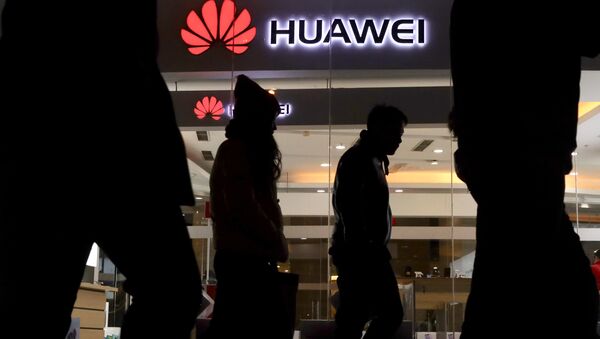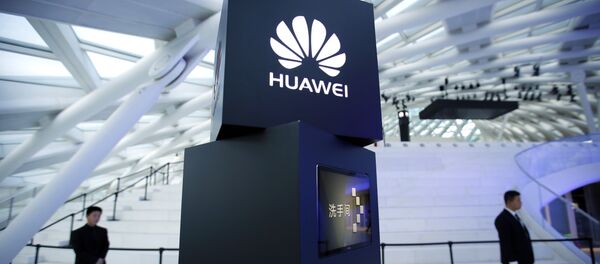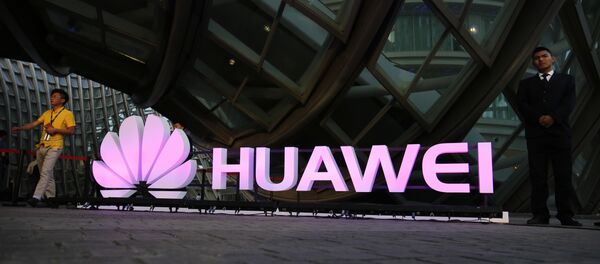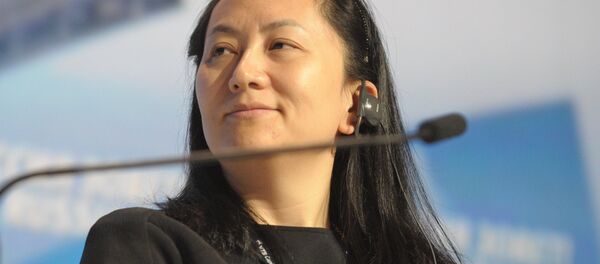Radio Sputnik has discussed what markets Huawei could turn to with Stuart Orr from Deakin University's Faculty of Business and Law in Australia.
Sputnik: What markets could Huawei turn to amid the growing suspicion towards it?
Prof Stuart Orr: Look it is certainly something that has been coming for a while since about 2003, really where the suspicion has increased and of course we have seen a number of markets already close for Huawei and perhaps it is worthwhile just briefly considering those. So we started off with the US and then fairly quickly followed by Australia limiting or blocking equipment from that manufacturer. New Zealand followed. And I think fairly soon we will see Germany and Japan and then shortly after, Italy and India.
READ MORE: US to Pursue Extradition of Huawei CFO From Canada — Justice Dep't
And I mentioned other countries with strong dependencies on Chinese investments will essentially be obliged to continue to maintain an open door to Huawei and so that will include countries like the Philippines. And of course Africa, where China is making major investments, particularly in countries such as Nigeria and Angola.
Sputnik: What is your particular take on this? How justified is this suspicion by these leading economies, obviously based initially from the suspicions from America? Is there enough evidence to accuse the company and the Chinese government of eavesdropping? I mean what research and sort of due diligence have you done to sort of confirm these stories, got any validity or not?
There is also the very important fact that it is difficult, which is difficult to avoid, is the fact that all Chinese companies are required to assist the Chinese government with intelligence gathering. That is a requirement. So it certainly does create a context and a fair degree of evidence. There are other court cases, which have been sustained going back as I have said to even 2003 when Huawei was accused of stealing intellectual property from the large network hardware maker CISCO. So, yes, there is plenty of evidence but more importantly, I think it has been aggregating for a period of time and I think that is what really seen in 2018.
Quite a flurry of activity in terms of as I said these cooperate intelligence agencies investigating and drawing fairly strong conclusions. But a lot of it is yet to come into the public domain.
Sputnik: This leads to the next question really. Who is benefiting and who is losing from this policy-driven towards Huawei and its markets? I mean is there any sort of pressure from the geopolitical strategy that the US is following and the support that governments from other countries, is that something that we really can't give any attention to?
Prof Stuart Orr: Well, yes, certainly the US is very concerned and it is working very hard to convince as many countries as it can to drive them [Huawei] from their markets because of a well-accepted position in the US that Huawei is involved in collecting information of political and military value for the Chinese government. So they are doing their best and of course, are well-positioned to encourage a lot of major particularly developed countries to follow suit.
READ MORE: Huawei Case Could Herald Tech 'Cold War': West Looking to Take Advantage — Prof
And I think what we are going to see is that as countries separate themselves away from Huawei, (they are going to…) it is going to drive up the cost of telecommunications. And what that is going to mean for poorer countries is that they will lag further behind in the telecommunications technology race.
The views expressed in this article are solely those of Stuart Orr and do not necessarily reflect the official position of Sputnik.






